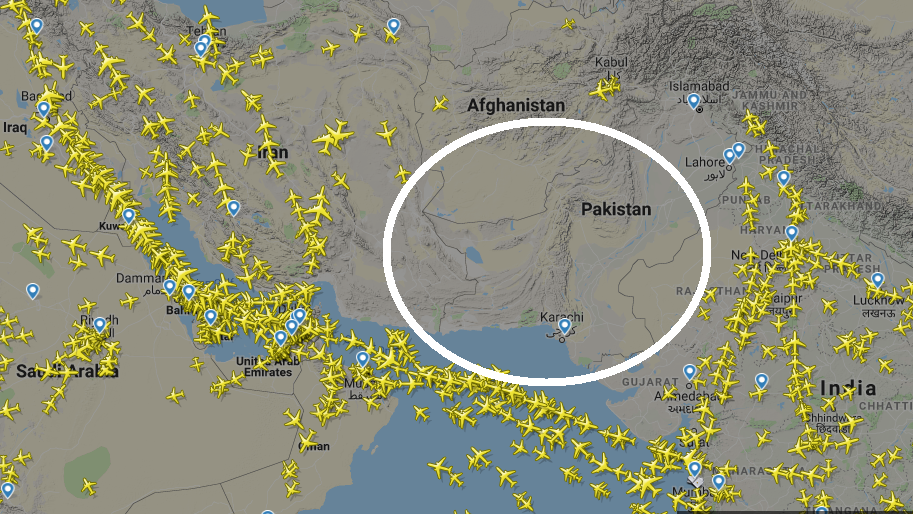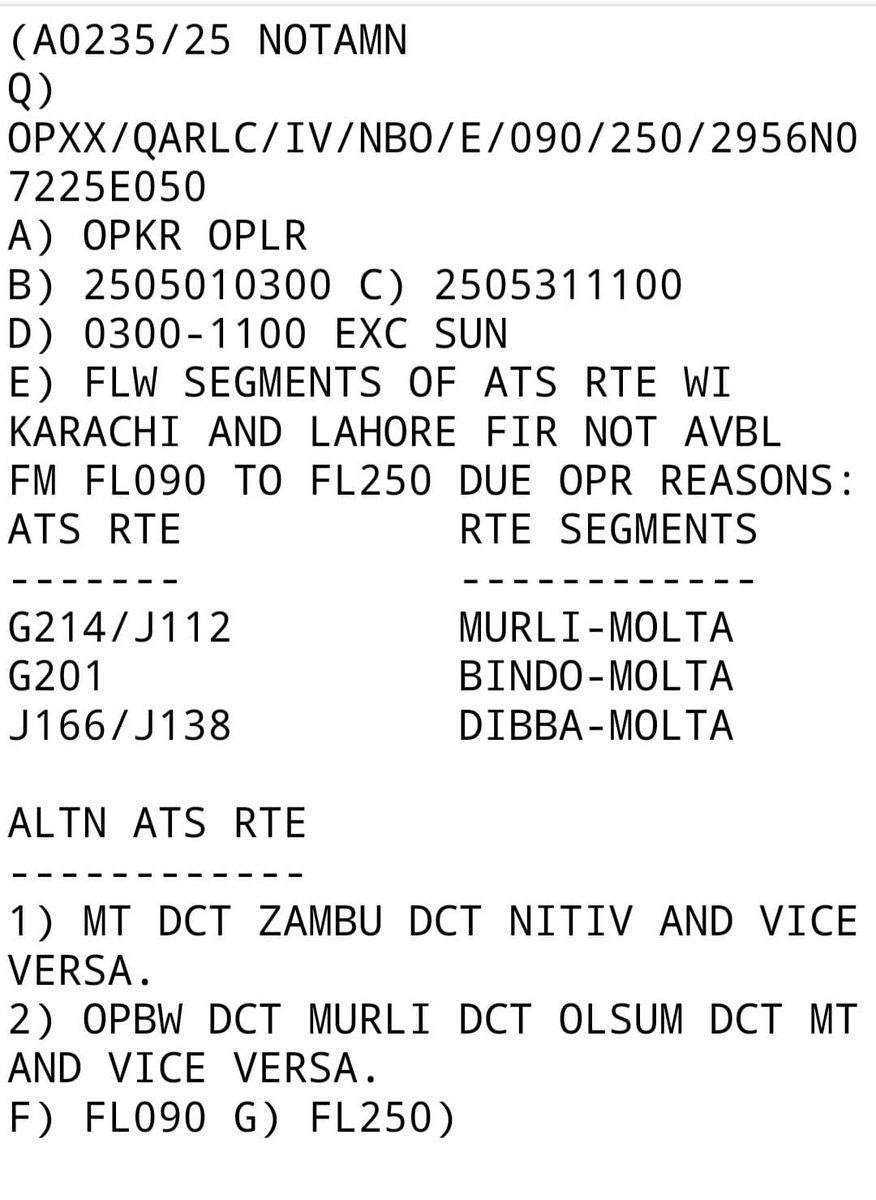


Multiple major Western airline companies have voluntarily stopped using Pakistani airspace amid escalating tensions between India and Pakistan. While there are no official bans on their aircraft, these carriers have opted to alter their flight paths as a precautionary measure.
Major European carriers including British Airways, Lufthansa, Swiss International Air Lines, Air France, ITA Airways, and LOT Polish Airlines have avoided the Pakistani airspace.
This development is not only forcing flights between Europe and India, on average, about an hour longer, it's also affecting Airspace revenues of Pakistan.
The Pakistan Civil Aviation Authority collects overflight fees from carriers for using its airspace. These detours could bring a sizable economic setback for Pakistan, if conditions of South Asian region do not improve positively.
With multiple non-Indian carriers rerouting their flights and Indian carriers not using the Pakistani Airspace, Pakistan is poised to lose millions of dollars in monthly revenue.
Not for the first time, a similar situation happened in year 2019, when Pakistan closed its airspace for nearly five months following the Balakot airstrikes, resulting in losses of approximately 100 million USD.
For now, as a consequence to the recent terrorist attack in Pahalgam, Jammu and Kashmir, which claimed the lives of 26 tourists, India and Pakistan imposed mutual restrictions on each other’s airspace.

Indian aircraft are barred from entering Pakistani airspace, and Pakistani aircraft face reciprocal restrictions from India. With Western airlines now also avoiding Pakistan’s skies, the financial blow to the country is expected to deepen further.
For Pakistani carriers, the Indian Airspace ban impact is expected to be limited, Pakistan’s international flight network is very small, limited flights to Far East, such as Islamabad to Beijing and Kuala Lumpur, regularly use Indian airspace.
Pakistan International Airlines is in the process of rerouting these flights Far East flights via longer paths over China, Laos, and Thailand.
For sure, Indian airlines may be suffering, but key international operators who chose to avoid Pakistani airspace will not be paying Pakistan either for use of their airspace.
The Centre for Asia-Pacific Aviation (CAPA) said Indian carriers being denied overflight rights over Pakistani airspace are sustaining extra expenses of $70-80 million per month.
There is growing concern that rising travel times and increased fuel consumption may eventually lead airlines to pass on the added costs to passengers in the form of higher ticket prices.
The Indian government has initiated consultations with all major airlines operating international routes to evaluate the possible fallout of Pakistan’s airspace closure on flight operations and finances.
Indian airlines yesterday submitted their inputs on the impact of the Pakistan airspace closure to the civil aviation ministry. The airlines including Air India, IndiGo and SpiceJet have given their inputs and suggestions to the ministry, news agency PTI reported.
Tata Group owned Air India, has estimated a loss of nearly $600 million if Pakistan’s airspace remains closed to Indian carriers for a full year, and has urged the central government to provide financial assistance to offset the impact.
Considering the new developments on the ongoing closure of Pakistani airspace to Indian carriers, the Indian Directorate General of Civil Aviation (DGCA) has granted Air India a temporary exemption from standard pilot duty time and rest regulations, as per an internal memo.
This temporary deviation aims to mitigate operational disruptions on ultra-long-haul routes, particularly to North America, caused by extended flight duration.
Extended flight duty periods: For flights up to 12 hours, the maximum flight duty period has been increased from 14 to 16 hours. For flights exceeding 14 hours, the duty period has been extended from 22 to 24 hours.
Adjusted rest periods: Corresponding rest periods have been modified, with layover rest increased by four hours and home base rest extended by 12 hours.
These adjustments are effective from April 30 for a two-week period and apply to 28 flights operating to destinations such as New York, San Francisco, Toronto and Chicago.
